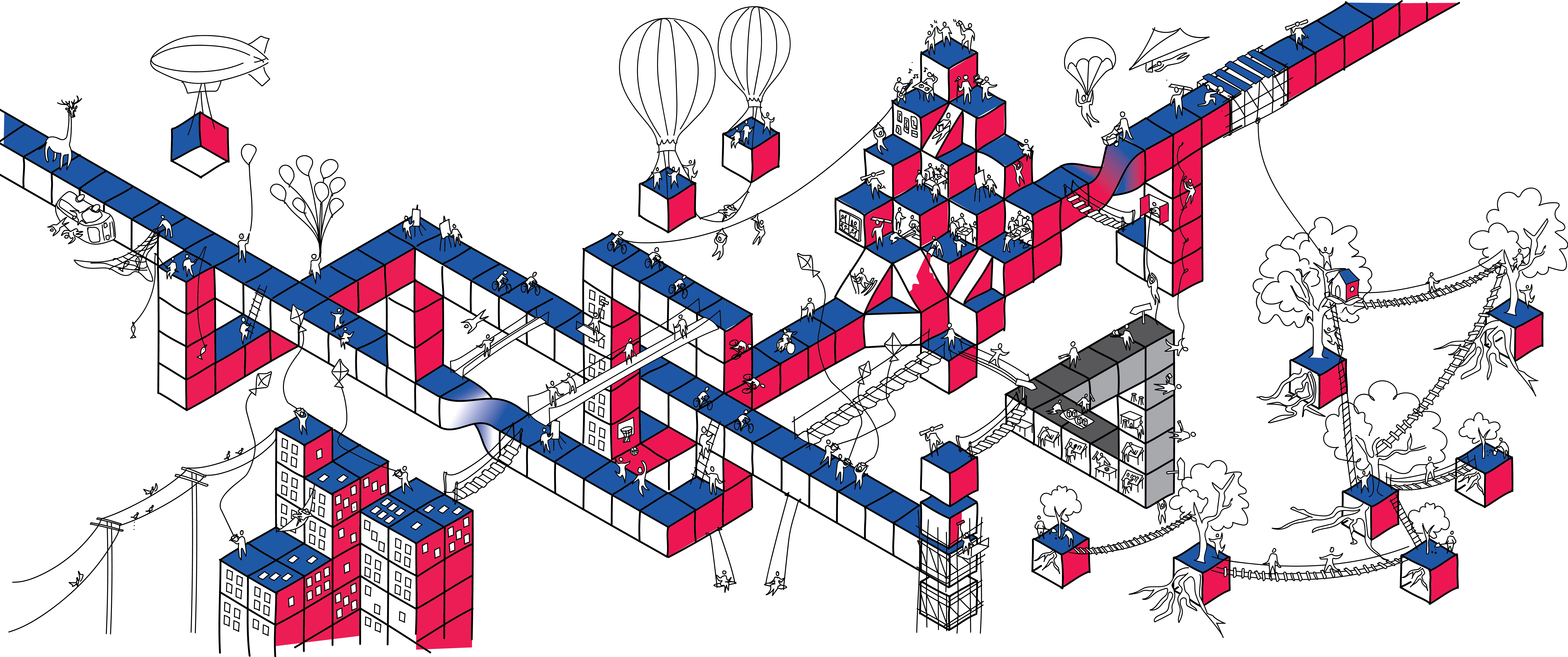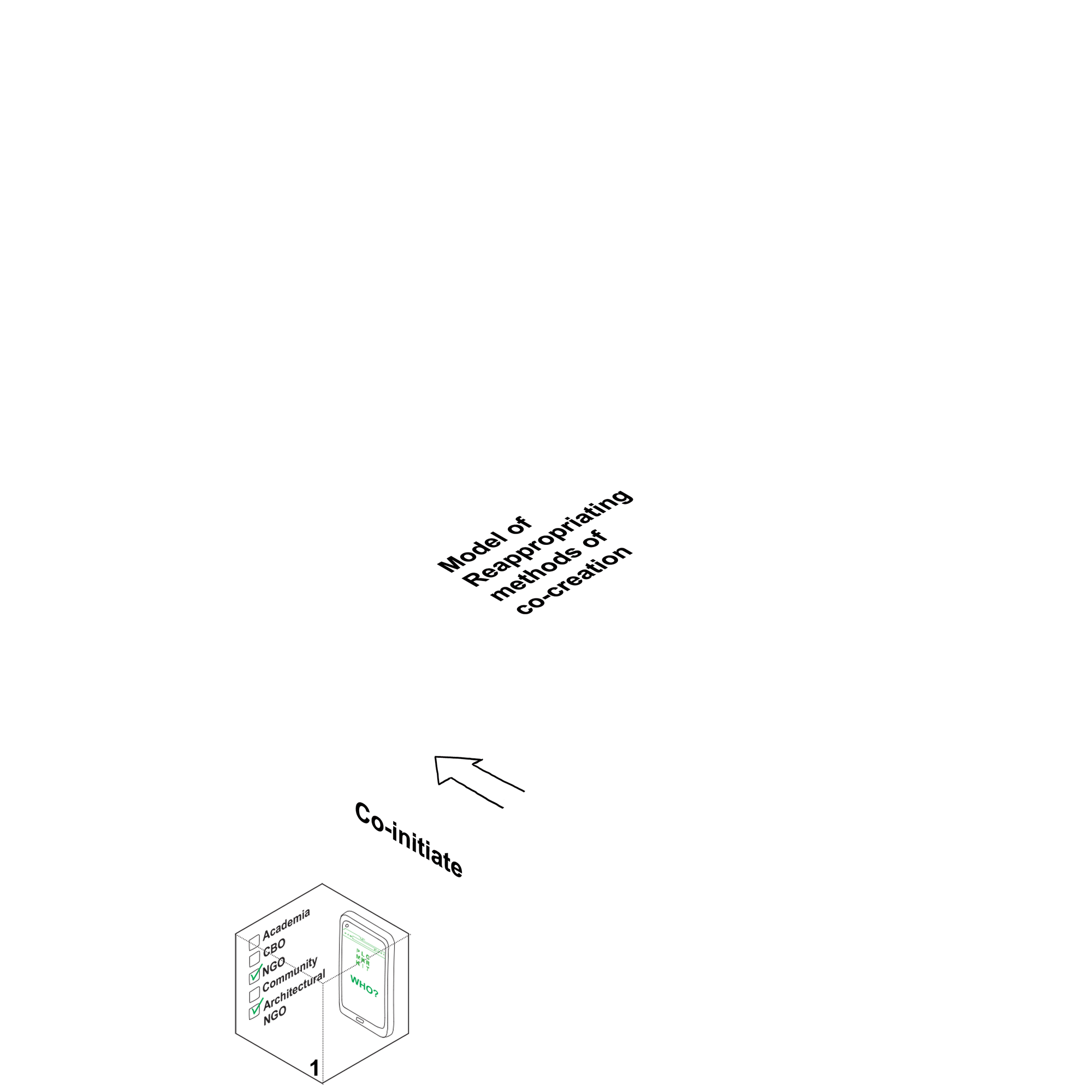
‘Local-Non-Local’ contains our journey of re-appropriating co-creation methods for remote collaborations in community development projects, along with our reflections during the whole journey.
Our thesis is divided into four main parts, each presenting a part of our process. The background and start of our journey are shared in the first chapter Beginning. Next, Act 1 presents our Thinking, including explorations of the field and concepts and Act 2 Doing includes our realization of the conceptual exploration into practical outcomes. The two acts can be read separately by themselves, as well as together to understand the bigger picture. Finally, the last chapter Continuing includes our vision for contributing to the outcome.
Placemaker’s Kit
Placemakers are – “All who make and sustain the quality of human settlements, including principally the people and communities who are the inhabitants, architects, planners, or experts.”
Nabeel Hamdi, 2010
Nabeel Hamdi’s definition of placemaker is what inspired our primary outcome – designing the Placemaker’s kit – a web-based platform. This sentiment is the essence of what we want to contribute to within the field — a set of co-creation methods approaches to support placemakers in remote collaboration in community development projects.
The Placemaker’s Kit combines our experiences of reappropriating conventional co-creation methods into working remotely and with the context-specific methods reappropriated in the co-creations in Reality Studio 2021. The approach of context specific re-appropriation has proven crucial and must be done for all methods of remote co-creation. The generic methods can only ast as a base and can not be applicable for all contexts worldwide. So, our idea here is to propose the Placemaker’s kit as a tool that act not only as a resources of methods for remote co-creation but also to support the context-spefic reappropriation.

Our proposal is a web based platform where the process would be:
1. Users select their position within the context and with they will collaborate.
(Academia, CBO, NGO, Community member, among others)
2. Users select what phases of the co-creation process the project will operate within.
(Co-initiation, Co-analysis, Co-design, Co-implementation, Co-evaluation)
3. Users explore the different generic methods available on the website. Every method is connected to a co-creation story, that previous users uploaded in the platform as case stories sharing how it worked out.
4. Users preview the Placemaker’s Kit they just put together combined with all the methods. Here there will be suggestions of other methods that were not picked by the user but were deemed essential in other co-creation processes from the user-provided case stories.
5. Users download the Placemaker’s Kit. At this stage, all the methods are generic. The local and non-local collaborators now have to start the re-appropriation for the specific context.
6. Using the templates for the context-specific methods in the Placemaker’s Kit, the local
and non-local placemakers re-appropriate the generic methods to fit their context for all upcoming co-creation activities.
7. Placemakers carry out the co-creation activities according to the roles and co-decided
re-appropriations.
8. Placemakers co-evaluate and share their co-creation journey as a case on the placemaker kit platform. The user will connect the methods they have used with pictures and stories of how it was conducted in the specific context.
Similar processes continue in cycles and hopefully encourages new co-creation and engage more placemakers. Our hope is that the placemaker’s kit creates opportunities for remote collaboration in participatory community development projects beyond the limitations caused by the pandemic.
By sharing the co-creation stories and co-evaluated methods of co-creation in the Placemaker’s kit, our ambition is to inspire similar endeavors around the globe. Too often, project documentations are piled up in file cabinets and forgotten. The knowledge and stories of co-ceation should be out in the world for all to access and get inspired by!

More coming soon…